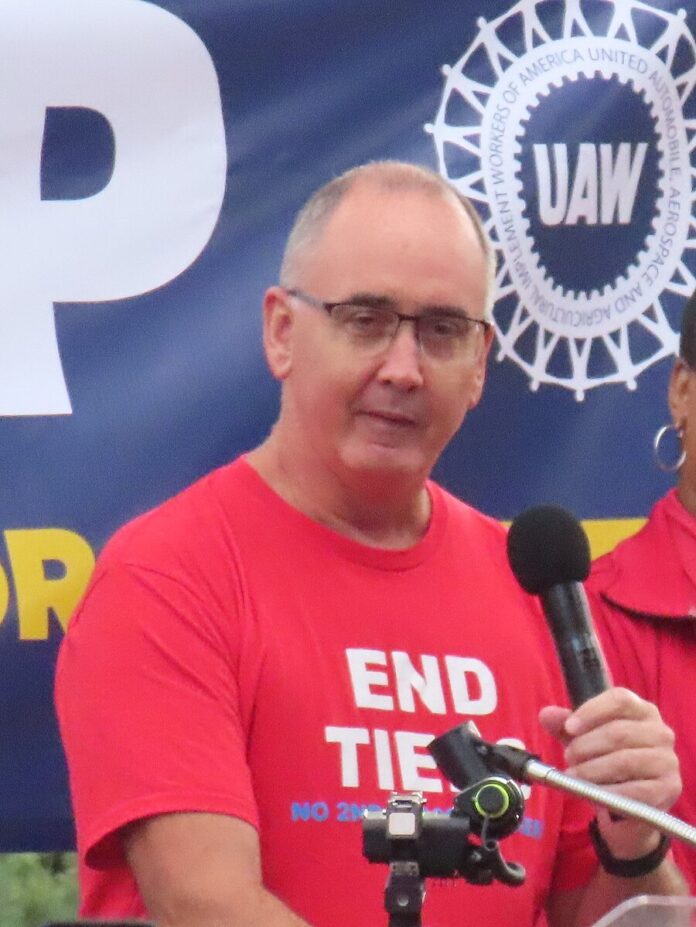The UAW (United Auto Workers) strike, which started on September 15th, 2023, has taken center stage in the ongoing battle between the UAW and the Detroit Three automakers: General Motors (GM), Ford, and Stellantis (formerly Chrysler). This strike marks a historic moment as it’s the 1st time in the UAW’s(union) 88-year history that all 3 companies have been targeted simultaneously.
This strike has already disrupted production in three key plants, impacting approximately 13,000 workers and causing ripple effects on other employees whose work depends on these factories. While the strike affects only a fraction of production, low inventory levels could increase consumer prices if the stoppage continues.
The primary issues at the heart of the dispute include pay increases, cost-of-living adjustments, and workweek modifications. Shawn Fain, UAW President, frames this strike as a fight for economic justice and a response to the growing wealth gap between workers and corporate leaders. The UAW initially sought a 40% pay raise over a four-year contract, highlighting the substantial salary hikes for company CEOs and increased profits in recent years.
The CEOs of these automakers earned pay packages exceeding $20 million in the previous year, fueling worker discontent. Additionally, the shift towards electric vehicle production has raised concerns within the union, as it could result in reduced job opportunities for UAW members due to the employment of non-union labor.
The UAW strike reflects broader labor unrest amid an industry that accounts for 3% of the national economy. United States President Joe Biden has weighed in on the issue, acknowledging the workers’ frustrations and emphasizing the importance of fair compensation.
Negotiations have been underway, but significant gaps remain between the UAW’s demands and the automakers’ offers. The companies argue that the UAW’s proposals could lead to unsustainable labor costs and even bankruptcy. Nevertheless, the UAW remains determined, citing the need for shorter workweeks, pension improvements, job security measures, and an end to the “two-tier” wage system.
The ongoing strike has implications for the automotive industry and the broader labor movement in the United States. As workers stand together to demand better wages and working conditions, the outcome of this dispute will shape the future of labor negotiations and workers’ rights in the country. The UAW’s willingness to take this bold action underscores the importance of addressing economic inequality and ensuring workers get a fair share of the corporate success they help create.
Image is licensed under the Creative Commons Attribution-Share Alike 4.0 International license and was created by 42-BRT.
Image is licensed under the Creative Commons Attribution-Share Alike 4.0 International license and was created by 42-BRT.









